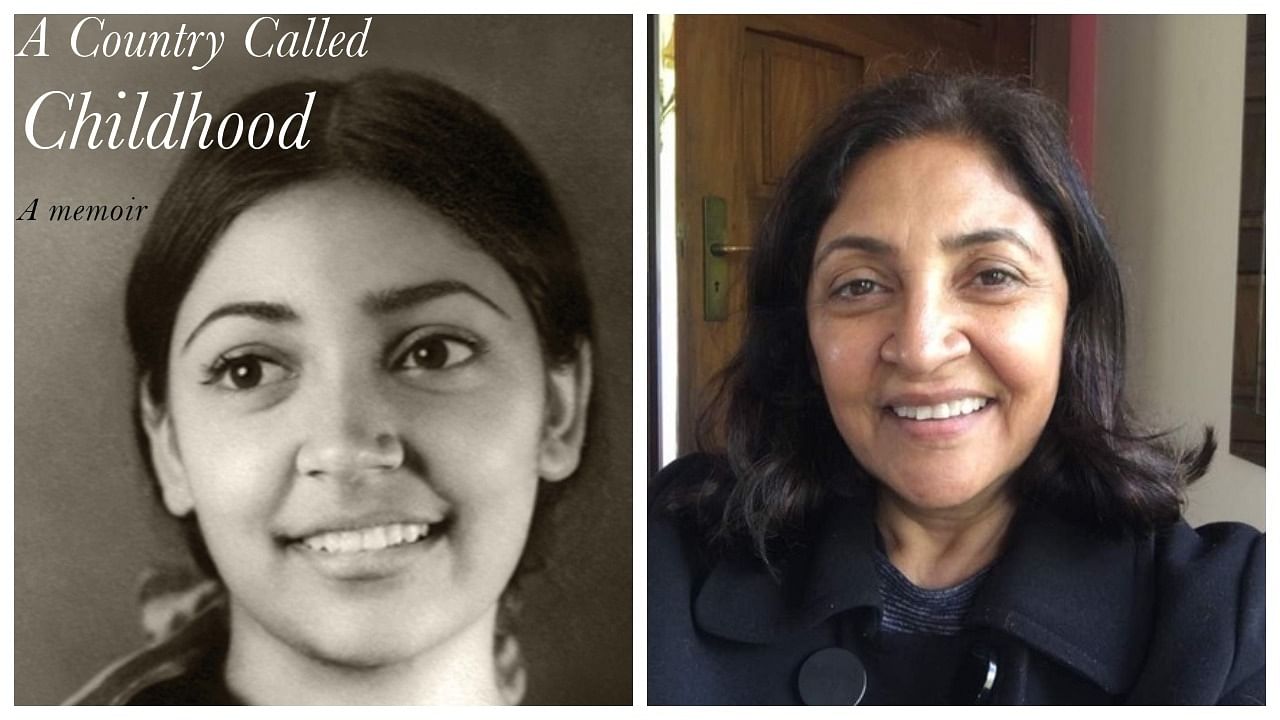
Deepti Naval is soft-spoken but firm. No, she will not talk about her illustrious film career; not her girl-next-door charm, not the iconic "Miss Chamko," none of it.
She hasn't hung up her acting boots yet, but today channelises her energies into writing. After having published poetry over the last few years, Naval has just launched her first full-length book titled "A Country Called Childhood." The book is a rich exploration of her formative years in Amritsar, penned down lyrically and evocatively. Excerpts from a conversation with the author.
You're a very private person. Why did you decide to pen down this very personal book now?
If I had been talking all these years about my life, I would have nothing to say as a writer. I always wanted to write this book and recreate my childhood for the reader, so I didn't discuss all the things I could have. I had it in mind that I would write a book about my glorious childhood someday. If you're somebody who likes to write, then you don't just give away all your material as a writer. Even when Dev Sahib (Dev Anand) wrote his book, he didn't give interviews because he was writing his autobiography.
You haven't touched upon your film career at all.
I set out to write a childhood memoir and not an autobiography. I wanted to only write about my childhood because I think it was a splendid time. I have unforgettable memories of it. Narrating a film career would have been run-of-the-mill. The book is not about an actress. It is a writer's memoir of her childhood.
Each chapter can be read in isolation, but they are all beautifully woven together, one leading into the other. How did you create this structure?
I had no idea about the structure of the book. This is where my publisher David Davidar comes in. I had childhood memories written down that I handed over to him. He looked at it and said it wasn't a book yet; it still needed form and structure. So, he asked me to write the events chronologically and worked hard to give them the current structure.
A lot of your anecdotes aren't just factual. They offer glimpses into the emotion behind each incident. Was that conscious?
In this book, I've been faithful to my childhood memories. So, my first and earliest memory is of the little boy with a bowl in his hand, standing at the bottom of the staircase for milk, only to be told that it has run out.
I have visual recollections of all these things. This book is about how I felt and my feelings towards things around me, how things started to change as I grew up and in what way they began to matter. Once you read the book, you know me.
For a lot of us, childhood memories are a blur. Yet, yours seem crystal clear.
I've been blamed for living in the past! Because I do. I've been reliving my childhood memories forever. Not just reliving them but also making notes ferociously. One memory happens in the head, leading me to another memory, and I put that down, so I don't forget. I've been making notes for decades now. When I go back to them, I remember the incident. I also sat with my parents and took down their stories and recollections. This book is a tribute to them, the city of Amritsar, and the glorious era of the late 50s and the entire 60s.
You've also published poetry earlier. How different is writing poems from penning down these experiences?
Poetry is more for me; it is an indulgent process as a writer. This book has been more difficult since it is for the reader.
Have you worked on any other creative projects lately?
Over the last five years, I've only acted in three web series. I have mainly worked on this book. I just took a small break to complete the film, "Goldfish," and then returned to writing. It has been my primary focus.
Is your career as a writer satisfying?
When I wanted to leave London to join films in India, my father was okay with it, but he told me that my film career would sustain only until the lines started appearing on my face. On the other hand, creative pursuits like writing and painting would be more lasting. That has stayed with me, and today I feel fulfilled as a writer.
(Neeti Jaychander is a journalist, writer and lecturer based in Chennai)